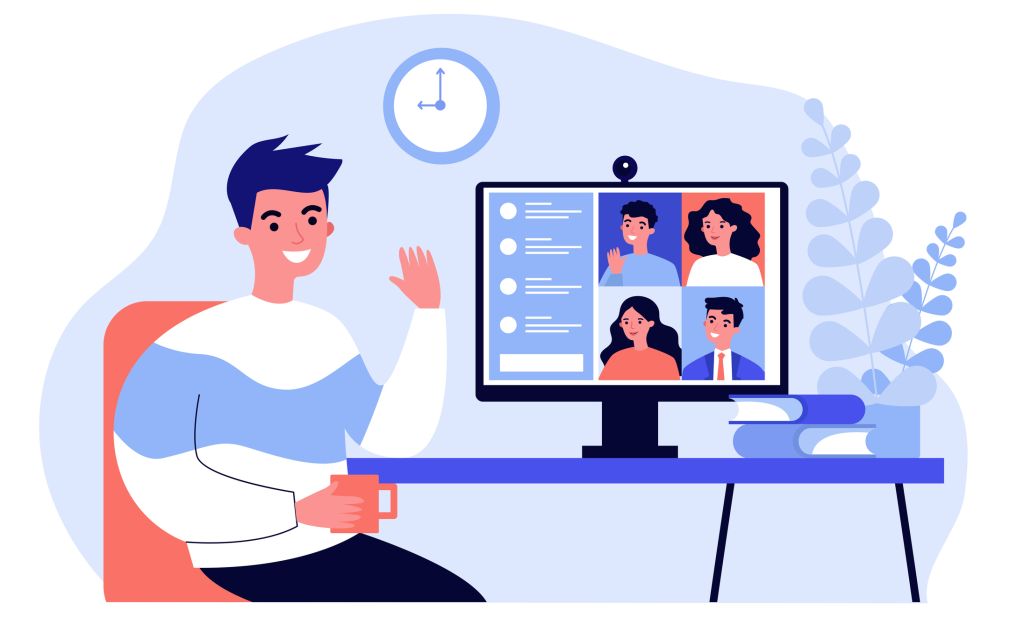Many organizations are preparing for their first-ever virtual open enrollment. And in today’s current climate, maximizing benefits offerings has never been more important for both employees and employers. Communicating with employees clearly and effectively about open enrollment will be more important than ever, but doing this without in-person meetings requires an entirely new toolkit.
Educating employees about available benefits and what they cover is essential. When employees don’t understand their benefits, they’re less likely to utilize them, which can negatively impact employee engagement and retention, costing organizations even more.
We sat down with Bill Gimbel, President of LaSalle Benefits, to discuss how HR professionals can maximize benefits offerings and effectively communicate them to employees this Open Enrollment period.
Update Your Communication Plan
An employee benefits communication plan is central to employee participation. With communication being virtual this year, it is crucial to reassess your strategy to ensure it is engaging and informative. Before creating the actual communication strategy, set goals for what is to be accomplished and by when. This could include improving general awareness of a benefit or increasing overall benefits participation by a certain percentage. Determine the frequency of communication needed to accomplish these goals, as well as how it will be communicated. Is communication most effective via email, text message, video call, pamphlet, or all those ways? Everyone processes information differently, so you must communicate in different ways, and repeat the message so it sticks.
Personalize your Communication
Remember the audience of this communication is not the HR team, and it’s important to adjust the language as such. Eliminate jargon while explaining the benefits. Tailor the message to the needs of the employee and identify how each benefit will help them in their current situation.
Host a Virtual Benefits Fair
Open enrollment can be a confusing time in even the best of circumstances, and in today’s remote working environment, it is important to provide as much guidance as possible to ensure employees understand what is offered. A virtual benefits fair can connect employees directly with benefit counselors to answer questions and can empower employees to make informed decisions.
Make Enrollment Mobile
Creating an online enrollment experience that can be accessed on mobile devices allows for employees to assess and make decisions about their coverage more easily. A self-service platform may be more native to Millennial and Gen Z employees and can provide a more accessible way to promote open enrollment to a virtual workforce. This online environment should include benefit summaries, informational videos among other helpful information, as well as allow employees to review their current benefits.
Create On–Demand Informational Resources
On-demand resources allow employees to take their time and revisit the information they need to confidently select benefits coverage. Consider creating digital enrollment guides that can be hosted online all year long. This gives employees the ability to prepare for open enrollment ahead of time and refer to the information if they have questions about their coverage during the year.
Break Down the Dollars-and-Cents
Increased cost clarity can help employees better understand and take ownership of their coverage. Especially for Millennials, one of the most important factors in choosing benefits is knowing the cost of the benefit, followed by the ability to pay for the benefits through automatic deductions. Giving employees tools like videos, graphs or digital calculators to estimate coverage needs and the cost of the coverage will help increase confidence while selecting coverage. These tools can help employees figure out the cost of each benefit offering and recommend a certain level of coverage based on their need. When employees can see the breakdown of cost and benefit of each offering, they can choose their coverage more confidently.
Discuss Benefits Live
Even the most tenured and well-informed employees often have questions about their benefits and providing time to ask questions live can encourage employees to reach out. This year, with added uncertainty due to COVID-19, employees are turning to their HR department more frequently. Consider circulating a calendar for employees to sign up for a time slot to jump on a video call with a member of your HR team to ask questions.
Once open enrollment has ended…
Human Resources leaders shouldn’t move on just yet. Now is the best time to set yourself up for a successful open enrollment in 2021. Here’s what to after this year’s period ends:
Store Smartly: Make sure all documentation (forms, emails, online enrollments) is stored somewhere that will be easily accessible at any point throughout the year ahead.
Reconcile Deductions: After the first payroll post the benefits effective date, reconcile all the deductions to ensure employee deduction amounts are correct.
Post-Mortem Meeting: In the weeks following the end of the open enrollment period, hold a meeting with everyone who played a role is leading and managing open enrollment. Before meeting, ask them to write down everything they feel did and didn’t go well. Share openly as a group and preface the meeting that the goal is to learn and be better for the year ahead. Make a digital copy of all thoughts and ideas shared to reference in 2021.
Ask for Feedback: Select a group of employees across positions and tenure who you trust would give honest feedback and ask them what they enjoyed most and least about open enrollment. What was confusing and what was explained clearly? Add these notes to the post-mortem document to reference in the year ahead.
New vendor? If you recently began working with a new vendor or plan to before the next open enrollment season, make sure you know what their open enrollment process is like ahead of time, so you can plan more accurately in the year ahead.
Are you looking to change your broker or want to learn more about what benefits top talent wants? Learn more from our sister company, LaSalle Benefits, here.




